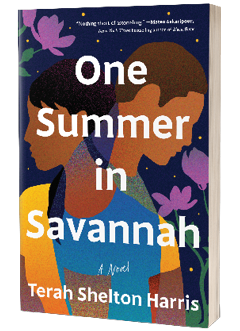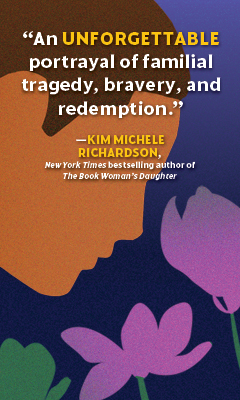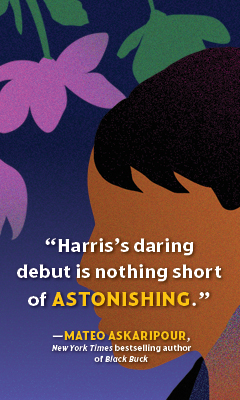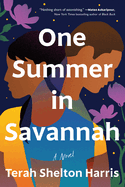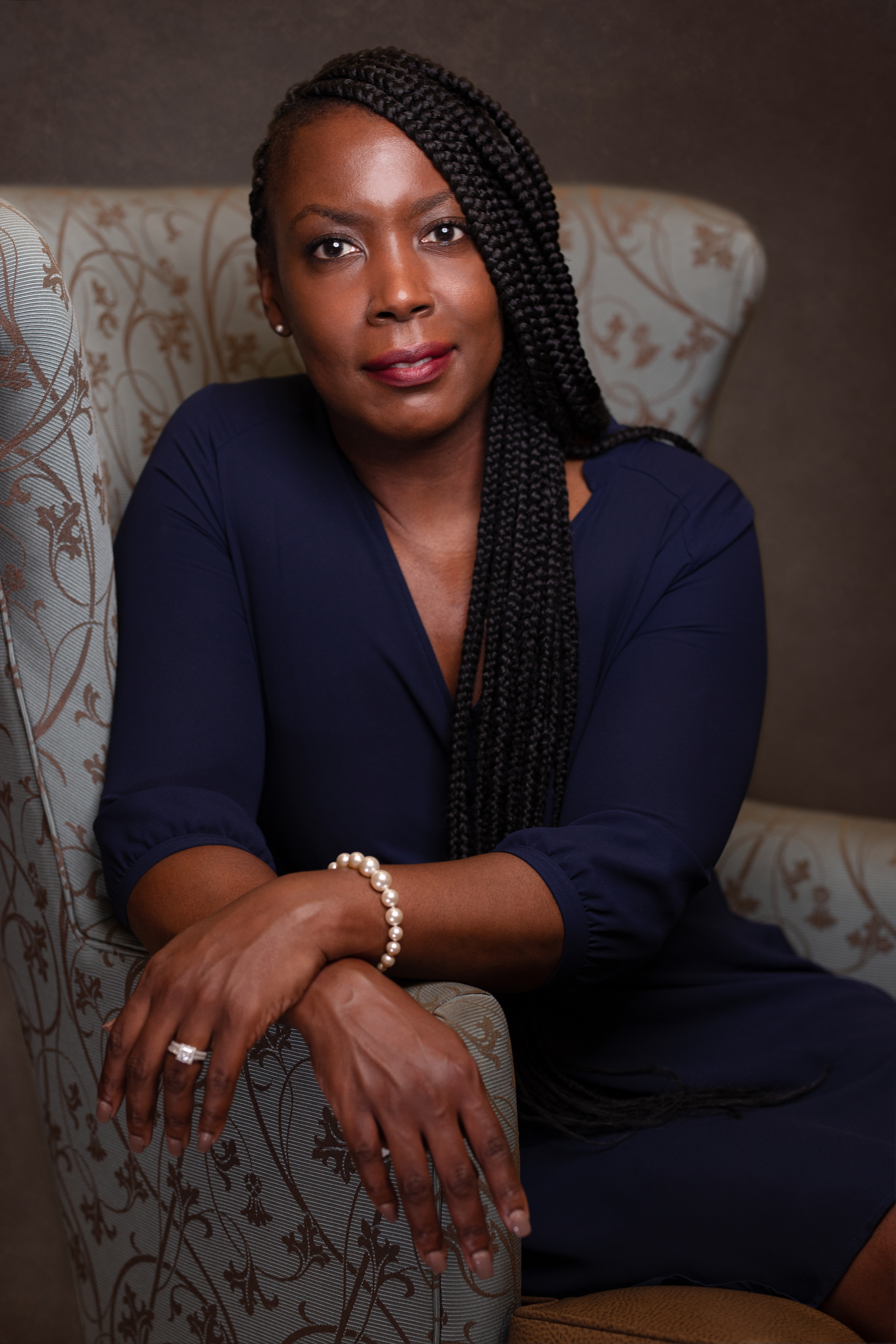One Summer in Savannah
by Terah Shelton Harris
One Summer in Savannah by Terah Shelton Harris is a beautifully rendered, amazingly accomplished first novel. Sensitively drawn characters populate this multi-layered, philosophical story infused with themes of grief, forgiveness, and acceptance. Harris traces the aftermath of a sexual assault, and its effect on the people involved, their families, and a community tucked amid the antebellum architecture and cobblestone streets of Savannah, Ga. The novel is set eight years after the attack and told via the intimate points of view of the victim, Sara Lancaster, and the twin brother of the attacker, David Jacob Wyler. These characters reveal how each of them--and the lives of their loved ones--were profoundly shaped by the crime.
The story begins with Sara, a Black woman now in her late 20s. She was raised by her "gentle but capricious" father, Hosea, the proprietor of the local bookshop who became a single parent when a car accident claimed the life of Sara's mother. After the trauma, Hosea, a fervent and unapologetic lover of poetry, sought solace in verse. He began to live his life largely conversing via "other people's words"--he incessantly recites notable poetic lines he's committed to memory, which can be "as alienating, even as destructive, as it is astounding" for Sara and others in his orbit.
At age 17, Sara attended a local high school party where she was raped by Daniel Wyler, a brilliant young man, charismatic and handsome, with a bright future in front of him. Daniel is the identical twin to his gentler, equally intelligent brother, David. The Wylers were once an influential family--interracially married, wealthy, progressive, and well-respected. That was before unexpected tragedies beset the family. The prolonged duress of familial loss and grief--shattering details that the author gracefully divvies out to readers--preceded the sexual assault for which Daniel was accused and later tried.
During a very public court battle, Daniel vehemently proclaimed his innocence, supported by his steadfast and headstrong mother, Bernadette (aka "Birdie"). David, however, testified--without coercion--to a different version of events. His testimony led to a guilty verdict that sentenced Daniel to 10 years in prison and drove a wedge between Daniel, David, and Birdie.
Sara moved to Maine and gave birth to a daughter, Alana--Daniel's child. Only Sara, Hosea, and Sylvia--who works at the bookstore and is a dear companion to Hosea--are privy to Sarah's whereabouts, Daniel's paternity, and Alana's existence. Sara builds a new life, determined to shelter and shield Alana from the truth. Until, years later, when Sara, now a published poet and teacher, receives a call from Sylvia informing her that Hosea is in the hospital. Sara returns to Savannah with Alana in tow, to take over running the bookstore.
Much has changed in eight years. Daniel remains in prison, having reformed his life in substantial, positive ways. However, he is now battling leukemia and in need of a bone marrow transplant. With Daniel's health challenge, David returns to town. He is a poetry-loving, introverted loner with advanced degrees in physics, astrophysics, and astronomy, who now goes by his middle name, Jacob--chosen in an effort to disassociate himself from Daniel and his actions. But a name change cannot alter the Wyler blood coursing through Jacob's veins--nor his bone marrow. Upon his return, his estranged, now reclusive mother, Birdie, asks: Is Jacob willing to help save his brother's life?
Providence is hard at work in the lives of these people who are still trying to untangle themselves--and move on--from the past. Life takes an unexpected, drastic turn when Jacob crosses paths with his unknown, eight-year-old niece, Alana, while she is on a school trip to the science museum, and later, with Sara, when he attends an event at Hosea's bookshop. Without recognizing each other at first, Sara and Jacob have an instant attraction. However, once their identities are revealed, emotions escalate, and panic ensues. The walls Sara spent years building are suddenly breached. Jacob seems kind and sincere. But can Sara trust him? What will happen, what will change, if the truth gets out--if Jacob discovers that Alana is actually his niece, his brother's daughter... a Wyler?
Grief--protracted and active, and processing it in different ways--permeates this tender, sympathetically drawn story that brings together many surprising threads. Harris employs great finesse in knitting these intricate subplots, and ratcheting up complications that posit provocative and inspiring moral questions.
Love and loss, forgiveness and redemption--these emerge as central themes whose intricacies are fortified via the alternating points of view of Sara and Jacob. Readers are allowed an introspective glimpse into deeply wounded characters forced to confront the past and its injustices while grappling with the truth of who they are and what they want out of life. What are they willing to sacrifice in order to embrace the unknowns of the future?
Readers will be completely swept up and absorbed by Harris's emotionally evocative storytelling, as she exquisitely probes the bittersweet depths of the human condition and the renewable nature of the heart and soul. --Kathleen Gerard



